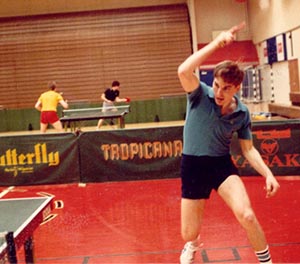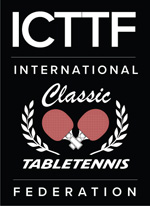How the Orioles Help Me Get Work Done
Other than table tennis, I don't really follow too many sports. Locals at MDTTC took great glee recently in quizzing me about the college basketball finals, or whatever that thing that went on recently, and laughing at my utter ignorance of who the "Final Four" were, or that it was even going on. I claim similar ignorance of NBA, NFL, NHL, and most other sports. (When quizzed, I was only able to name three current NBA players, though with time I guarantee you I could have come up with two or three more . . . at most.) I do follow tennis a bit. (I'm a former member of the U.S. Tennis Association, and went to group training sessions twice a week for years as my "side" sport.) But I do have one sport I follow, and that's Baltimore Orioles baseball. I've been a fan since I was a kid.
As readers might know, I've coached three of them at MDTTC - Darren O'Day, JJ Hardy, and Brady Anderson - and visited their clubhouse in 2013 with our top juniors to take on their players for three hours. (Here's my blog about it, and here's a group picture. It was surreal discussing topics like talent and training with Chris Davis and others, hitting with many of the players, and meeting them all.) I also write humorous articles about the Orioles, with 27 articles published in Orioles Hangout.
Normally I do my blog in the morning, but I run into problems doing that during our training camps, which take place all summer as well as in our spring break camp (going on right now). I'd have to get up extremely early to get the blog done before leaving to coach at these camps. So what's my solution?


 Photo by Donna Sakai
Photo by Donna Sakai




